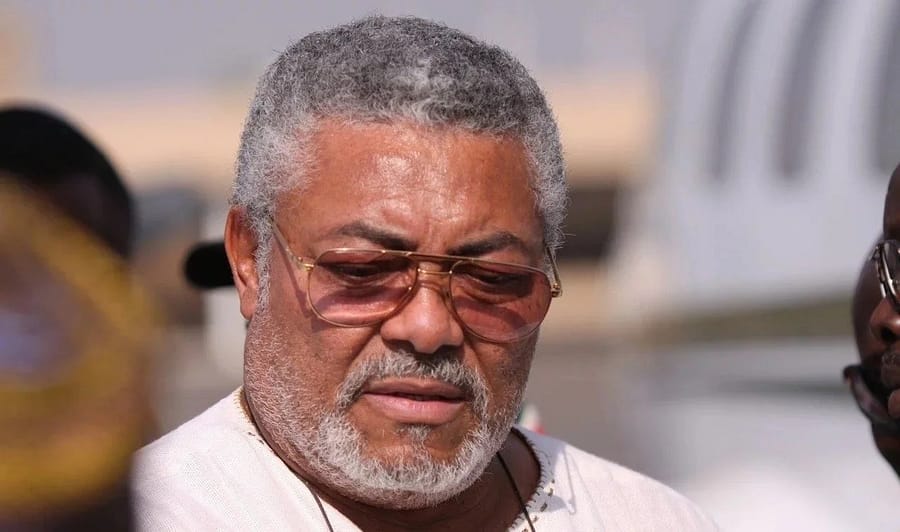
Jerry John Rawlings, a towering figure in Ghana’s political landscape, remains a subject of intense debate and scrutiny. His journey from a charismatic military officer to a two-time head of state and finally, a democratically elected president, is a narrative marked by dramatic turns and profound implications for Ghana and beyond. To determine whether Rawlings was a hero or a tyrant, we must delve into his life, governance, and the lasting impact of his policies, drawing on a wide array of sources and credible accounts.
The Ascension to Power: A Coup and a Purge
Rawlings first rose to prominence on June 4, 1979, when he led a group of junior military officers in a coup d’état against the Supreme Military Council (SMC) government led by General Fred Akuffo. This coup, known as the “June 4 Revolution,” was driven by widespread discontent over corruption, economic mismanagement, and the perceived aloofness of the ruling elite. As the leader of the Armed Forces Revolutionary Council (AFRC), Rawlings promised to cleanse the nation of corruption and restore integrity to the government.
The AFRC’s rule was marked by a series of dramatic and often brutal measures. In the name of justice and accountability, the council executed several high-ranking military officers and former government officials, including three former heads of state. These executions, carried out after hasty trials, were met with both praise and condemnation. While some hailed them as a necessary purge to root out corruption, others condemned them as extrajudicial killings that undermined the rule of law.
Historian Basil Davidson noted, “The executions were a shock in Ghana, a country not accustomed to such public displays of violence. Yet, they were also seen by many as a cathartic moment, a break from the past that promised a new beginning”. This dual perception of Rawlings’ actions would continue to define his legacy.
The First Era of Governance: A Brief Respite
After three months, Rawlings handed power back to a civilian government, led by President Hilla Limann. However, his influence remained significant, and the brief period of democratic governance was marked by economic instability and political unrest. The Limann administration struggled to address the nation’s economic woes, and Rawlings’ criticism of the government grew increasingly vocal.
On December 31, 1981, Rawlings seized power again, this time through a military coup that overthrew the Limann government. This event marked the beginning of his second, more prolonged period of rule, as the Chairman of the Provisional National Defence Council (PNDC).
The Second Era of Governance: Authoritarianism and Reform
Rawlings’ second period in power was characterized by a shift towards authoritarianism. He suspended the constitution, banned political parties, and ruled by decree. This period was marked by a strong emphasis on economic reform and social justice, but also by significant human rights abuses.
Under the PNDC, Ghana implemented a series of structural adjustment programs in collaboration with the International Monetary Fund (IMF) and the World Bank. These programs aimed to stabilize the economy, reduce inflation, and promote growth. Economist Jeffrey Sachs, who worked closely with the Rawlings government, stated, “The economic reforms were painful but necessary. They laid the groundwork for Ghana’s future prosperity, but they also required difficult sacrifices”. The austerity measures led to widespread protests and social unrest, which were often met with a heavy-handed response from the government.
Rawlings’ regime also focused on social programs, including education and health care. These initiatives led to improvements in these sectors, with increased access to education and health services for many Ghanaians. However, the government was also accused of human rights abuses, including censorship, imprisonment of political opponents, and restrictions on civil liberties.
The Transition to Democracy: A New Beginning
In 1992, Rawlings transitioned Ghana to democratic rule by overseeing the drafting of a new constitution and holding multiparty elections. He won the presidency in the 1992 and 1996 elections, serving until 2001. This transition is often cited as a significant achievement, as it marked the beginning of a period of political stability and economic growth in Ghana.
The transition to democracy was not without its challenges. Rawlings’ government faced criticism for its handling of the elections, with allegations of intimidation and electoral fraud. However, the elections were generally regarded as free and fair, and Rawlings’ victory was seen as a testament to his enduring popularity among many Ghanaians.
The Legacy: A Complex Tapestry
Rawlings’ legacy is a complex and multifaceted one. On one hand, he is credited with stabilizing the economy, improving infrastructure, and promoting social development. His economic reforms, while painful, laid the groundwork for Ghana’s future prosperity. On the other hand, his authoritarian rule and human rights abuses are significant blemishes on his record.
Journalist and political analyst Kwesi Jonah commented, “Rawlings was a transformative figure, but his methods were often controversial. He brought about significant change, but at a considerable cost”. His supporters argue that his strong leadership was necessary to address the nation’s challenges, while his critics contend that his methods were often heavy-handed and undemocratic.
Conclusion: A Leader of Contradictions
In conclusion, labeling J.J. Rawlings as either a hero or a tyrant is an oversimplification of a complex and contradictory legacy. His leadership was marked by significant achievements and profound controversies. While he played a crucial role in shaping modern Ghana, his authoritarian rule and human rights abuses cannot be ignored. The truth about Rawlings lies in the nuanced understanding of his actions and their consequences, reflecting the difficult choices leaders must make and the complex interplay of power, ideology, and governance.
